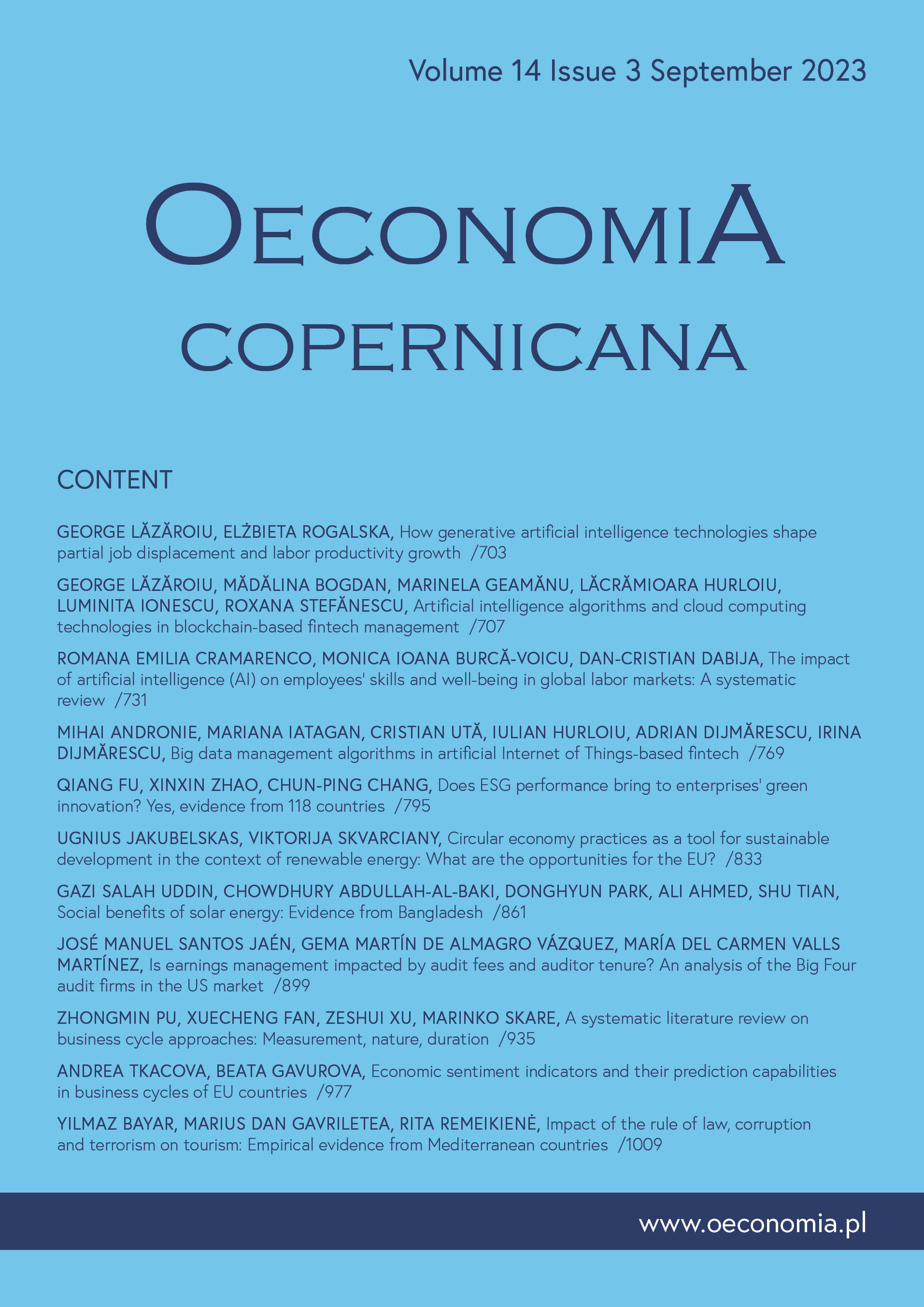Artificial intelligence algorithms and cloud computing
technologies in blockchain-based fintech management
Artificial intelligence algorithms and cloud computing
technologies in blockchain-based fintech management
Author(s): George Lăzăroiu, Madalina Bogdan, Marinela Geamănu, Lăcrămioara Rodica Hurloiu, Luminița Ionescu, Roxana ȘtefănescuSubject(s): Business Economy / Management, ICT Information and Communications Technologies
Published by: Instytut Badań Gospodarczych
Keywords: artificial intelligence algorithms; cloud computing; blockchain; fintech; green and sustainable finance; banking;
Summary/Abstract: Research background: Fintech development shapes corporate investment efficiency and economic growth with innovative tools, and can decrease financing constraints of enterprises, enabling direct and indirect financing and furthering inter-bank competition. Crowdfunding- and blockchain-based fintech operations harness deep and maching learning algorithms, augmented and virtual reality technologies, and big data analytics in mobile payment transactions. Purpose of the article: We show that fintechs have reconfigured financial service delivery by harnessing AI-based data-driven algorithms and cloud and blockchain technologies. Fintech optimizes financial organization and services, economic structures and growth, data analysis, and digital banking performance. Machine learning algorithms can streamline payment operation capabilities and process promptness, ensuring smooth operational flows, assessing risks, and detecting frauds and money laundering by historical data and customer behavior analysis across instant payment networks and infrastructures. Methods: Quality tools: AXIS, Eppi-Reviewer, PICO Portal, and SRDR. Search period: July 2023. Search terms: “fintech” + “artificial intelligence algorithms”, “cloud computing technologies”, and “blockchain technologies”. Selected sources: 40 out of 195. Published research inspected: 2023. Data visualization tools: Dimensions and VOSviewer. Reporting quality assessment tool: PRISMA. Findings & value added: Fintech development enables organizational innovation by mitigating information asymmetry and financing limitations while providing financial assistance and tax incentives in relation to products and services. The fintech growth has influenced the dynamic intermediary function of financial institutions in terms of sustainability and economic development. Fintech and natural resources negatively influence, while green innovations and financial development further, environmental sustainability.
Journal: Oeconomia Copernicana
- Issue Year: 14/2023
- Issue No: 3
- Page Range: 707-730
- Page Count: 24
- Language: English

